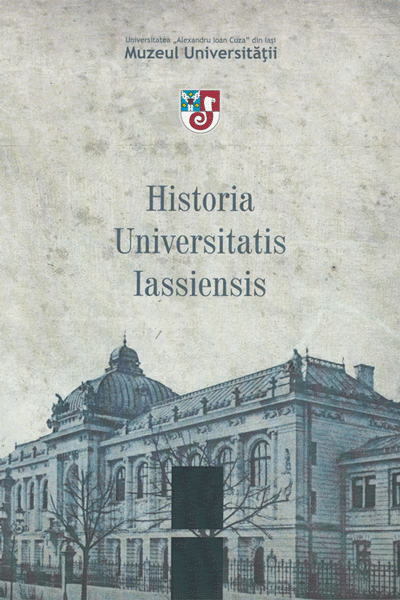Un student teolog la începuturile Universității din Iași: Constantin Erbiceanu (1860-1864)
A theology student at the beginning of the University of Iași: Constantin Erbiceanu (1860-1864)
Author(s): Leonidas RadosSubject(s): 19th Century
Published by: Editura Universităţii »Alexandru Ioan Cuza« din Iaşi
Keywords: University of Iasi; theological studies; students; Constantin Erbiceanu;
Summary/Abstract: In 1860, when the University of Iaşi started functioning, theological studies played a particular part among the projects of public education, being deemed vitally important for the preservation of the national essence and morality in a continuously changing society. One of the first students who enrolled in the Faculty of Theology was Constantin Erbiceanu, who later would become, together with more famous names like A.D. Xenopol and Nicolae Iorga, one of the Romanian historians who researched the Phanariote period and the Greek-Romanian cultural interferences more objectively than their predecessors, the Romanian Forty-Eighters. Coming from a family of priests, from the village of Erbiceni (near Iaşi), the young Constantin Erbiceanu had graduated, in 1858, from the Theological Seminary of Socola (with six grades) and had attended, for a short period, the Gymnasium of Iaşi; finding out that the University was to be opened, he enrols then as an “ordinary” student. The present paper follows the academic evolution of the future Hellenist, with a focus on the concrete conditions in which theological studies acquired their rightful place at the “National University”; it also focuses on his fellow students, his professors and the courses he attended, as well as on his graduation and even on his attempts to occupy, in 1864, one of the vacant chairs at the above-mentioned faculty.
Journal: Historia Universitatis Iassiensis
- Issue Year: 2012
- Issue No: 03
- Page Range: 75-120
- Page Count: 46
- Language: Romanian

